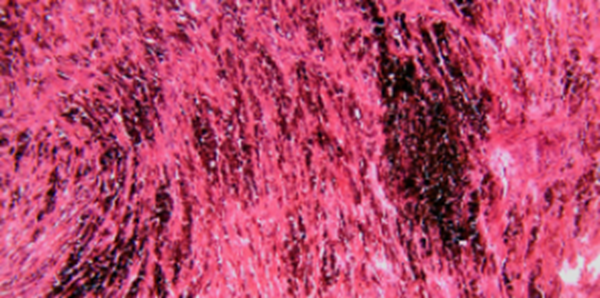About 1,600 people are diagnosed every year with Merkel cell carcinoma (MCC), a rare form of skin cancer.
More than 30 percent of people with MCC develop advanced disease in which the cancer spreads to other parts of the body. Until recently, there were few treatment options for these patients, especially if surgery, chemotherapy or radiation didn’t reduce the size of the tumor.
But thanks to a recent FDA approval, patients with metastatic MCC now have a new treatment option: Avelumab. Avelumab, also known by the brand name Bavencio, is the first treatment the FDA has approved for MCC. The approval comes after a clinical trial showed promising results for patients who took the drug. Here’s what you should know about avelumab:
Understanding Merkel Cell Carcinoma
Excessive sun exposure or a weak immune system can increase your risk of MCC, which occurs when the Merkel cells begin to grow rapidly. This cancer typically first appears as one firm, red lump on parts of the skin exposed to the sun.
Because Merkel cells grow rapidly, this cancer can spread quickly to other areas of the body, including the lymph nodes, brain, lungs and other organs.
When someone is diagnosed with MCC, surgery to remove the tumor is typically the first option, followed by radiation and chemotherapy. However, for patients with metastatic disease, where the cancer has spread beyond its original site, advanced treatments are necessary. This is where immunotherapy can play a critical role.
Avelumab: What it is & How it Works
Immunotherapy uses the body’s own immune system to fight and kill cancer cells.
Avelumab is an immunotherapy drug that works by targeting proteins found on tumor cells. It blocks two specific molecules from binding to one another. When these molecules bind together, they inhibit T cell production and prevent the body from attacking and destroying MCC cells. However, avelumab blocks this process, enabling the T cells to do their normal work and bolster the body’s immune system to fight disease.
The FDA actually gave avelumab accelerated approval, which is designed for drugs that clinical trial data indicates could be effective for serious medical conditions where limited or no treatment is currently available.
Avelumab underwent a clinical trial with 88 patients who had advanced MCC and had been previously treated with chemotherapy. Tumors partially or completely shrunk in 33 percent of patients who participated in the trial. Eighty-six percent of these patients had a response for more than six months and 45 percent of these patients had a response for more than a year, meaning their tumor was under control during this period.
Potential Side Effects
Though avelumab has produced promising results in patients who previously underwent chemotherapy, the drug does come with certain side effects.
These side effects include diarrhea, fatigue, nausea and pain in the joints, muscles and ligaments. Some patients also may experience a rash, reduced appetite and swelling in their limbs.
Though rare, avelumab also may lead to serious side effects in which the immune system mistakenly attacks healthy cells rather than the tumor cells it is supposed to target. A negative reaction to the infusion, the method in which the drug is administered, is another potential side effect. In these cases, we may take a patient off avelumab and try a different treatment approach. To be clear, every drug comes with certain side effects. But with avelumab, the potential rewards outweigh the potential risks. Before the FDA approved this treatment, patients with advanced MCC had limited to no treatment options. Researchers plan to launch another clinical trial with MCC patients who have not undergone chemotherapy, so we’ll eventually have more data about how this drug works for different patient populations.
If you notice a red, painless lump on parts of your skin that have received excessive sun exposure, see your doctor as soon as possible. MCC is rare, but it’s also an aggressive form of skin cancer that stands the best chance of being properly treated the earlier it is diagnosed.
Are you interested in learning more about skin cancer?
Skin cancers are the most common form of cancer. They include several types, such as melanomas and non-melanomas. Our team, which includes dermatologists, oncologists and surgeons, will work together to develop the best treatment plan for you.





